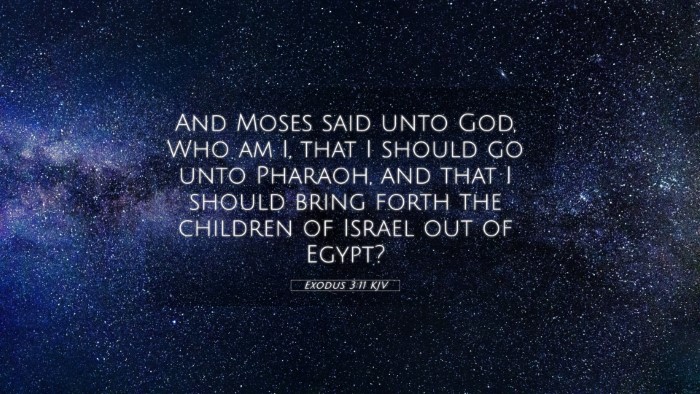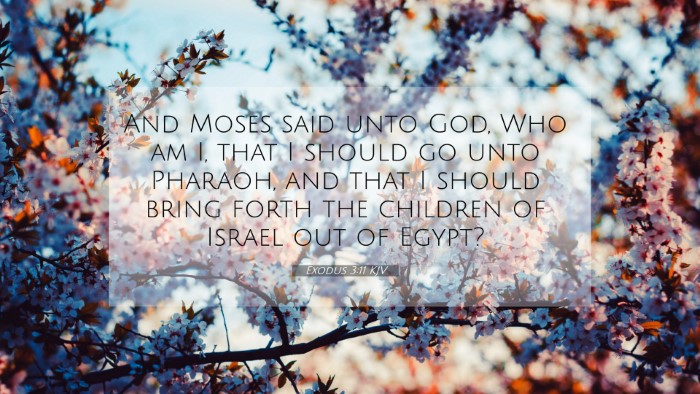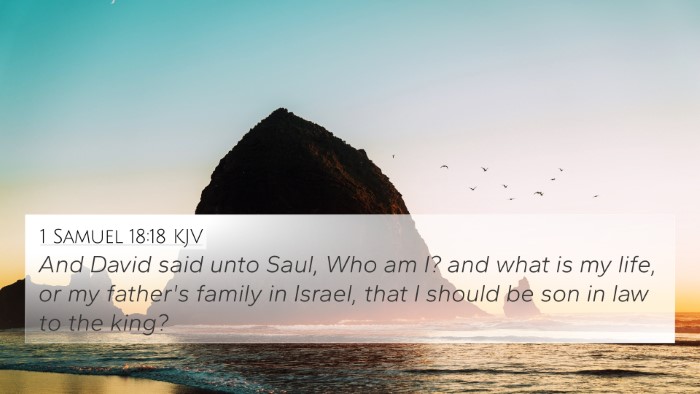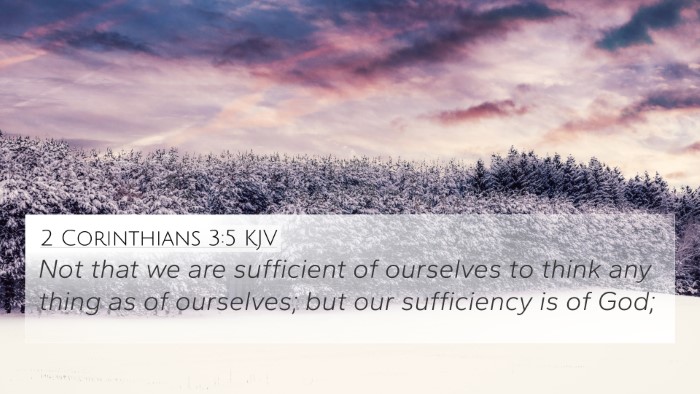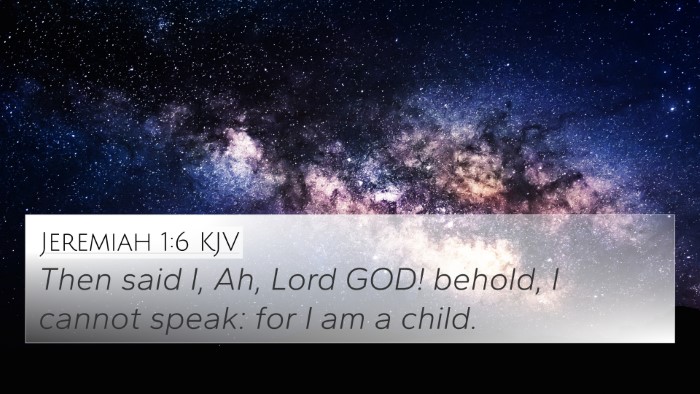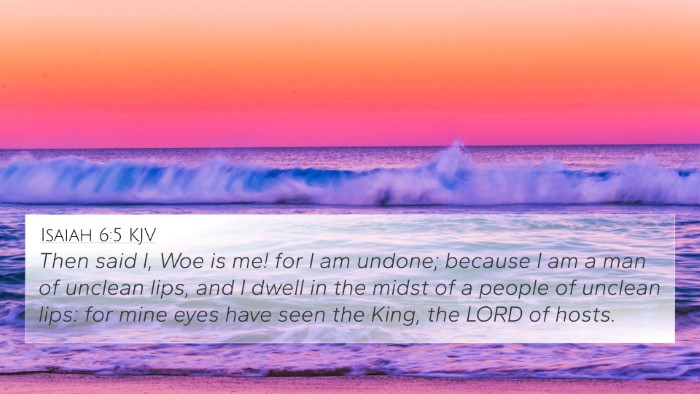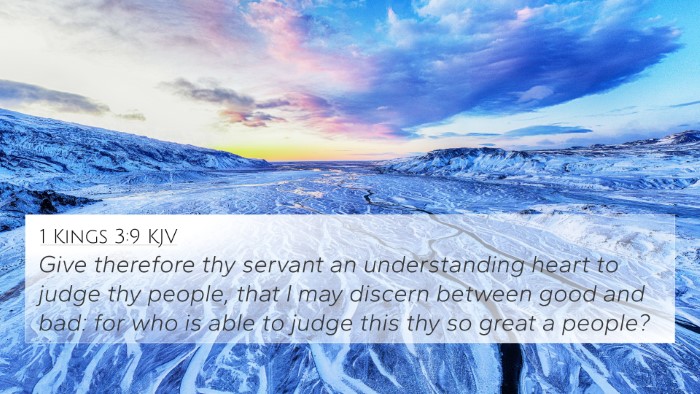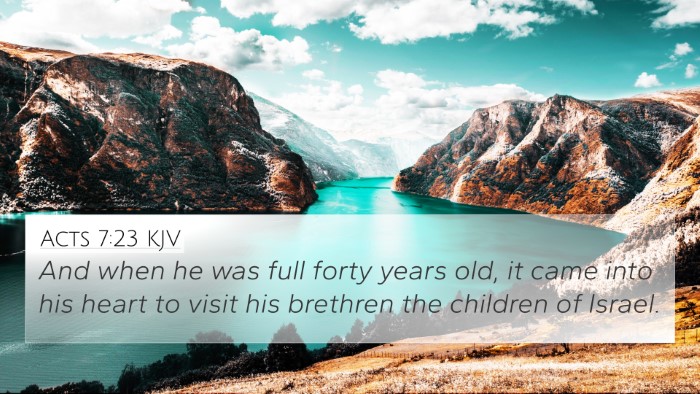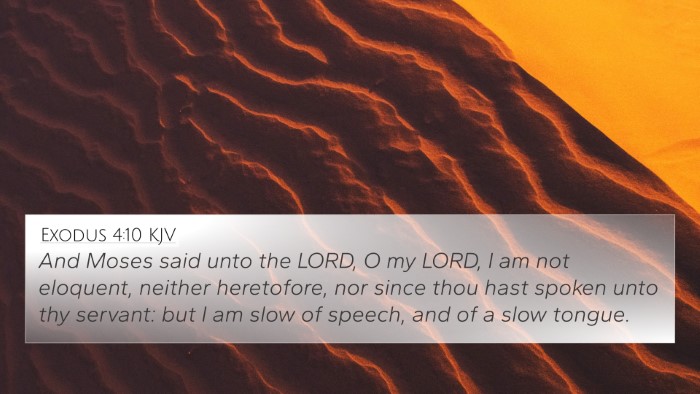Understanding Exodus 3:11
Exodus 3:11 states: "But Moses said to God, 'Who am I that I should go to Pharaoh and that I should bring the children of Israel out of Egypt?'" This verse captures a pivotal moment in the life of Moses when he is called by God to lead the Israelites out of bondage. To grasp its full meaning, we can explore various insights drawn from recognized public domain commentaries.
Summary of Insights
Moses' Hesitation
According to Matthew Henry, this inquiry reflects Moses’ initial hesitation and sense of inadequacy. Despite having been raised in Pharaoh's household, Moses feels unworthy of the task set before him. This mirrors a common human response when confronted with divine mandates—self-doubt and questioning one's capabilities.
The Divine Call
Albert Barnes elaborates on how God’s call to Moses signifies His sovereign choice. The question "Who am I?" is not just a reflection of Moses' humility, but also an acknowledgment of the divine authority behind the mission. Barnes suggests that the real emphasis should be on who God is rather than on Moses' perceived limitations.
A Lesson on Trust
Adam Clarke emphasizes that God chooses unlikely individuals to fulfill His purposes, thus highlighting the theme that God’s strength is made perfect in human weakness. Clarke notes that Moses’ doubt provides an opportunity for God to demonstrate His power and faithfulness as he relies on divine aid rather than personal ability.
Key Themes and Connections
- Self-Doubt and Divine Assurance: Moses' insecurity showcases how God often uses flawed and humble beings to accomplish His grand designs.
- Divine Commission: This interaction is foundational in understanding biblical leadership—obedience to God’s call is paramount regardless of personal feelings of inadequacy.
- Faith and Obedience: The scenario calls for a deep trust in God’s plan, mirroring other biblical figures who were called under similarly daunting circumstances.
Bible Verse Cross-References
This verse closely relates to several other scriptures that echo themes of calling, inadequacy, and God's empowerment:
- Jeremiah 1:6-9: Jeremiah questions his youth, and God reassures him of His presence and authority.
- Isaiah 6:5-8: Isaiah recognizes his unworthiness and yet responds to God's call to service after being cleansed.
- 1 Corinthians 1:26-29: Paul highlights that God chooses the weak and foolish things to confound the wise.
- 2 Corinthians 12:9: God's declaration that His grace is sufficient, emphasizing strength in weakness.
- Judges 6:15: Gideon expresses his doubts regarding being the least in his family, which parallels Moses' concerns.
- Matthew 11:28-30: Jesus invites the weary to find rest in Him, underscoring the comfort found in reliance on divine strength.
- Philippians 4:13: "I can do all things through Christ who strengthens me," reflects the theme of empowerment beyond personal ability.
- Luke 18:27: Jesus states that with God, all things are possible, framing the narrative of divine capability.
- Exodus 4:10-12: Further demonstrates Moses' struggle with speech and God's assurance of equipping him.
- Romans 8:31: "If God is for us, who can be against us?" mirrors the assurance given to Moses about God's backing in his mission.
Conclusion
Exodus 3:11 serves as a profound reminder of God’s meticulous choice in selecting leaders and highlights the eternal principle that expertise and ability must yield to divine wisdom and strength. Individuals seeking to understand their own calling or purpose in life can draw encouragement from Moses' story of doubt turned to faith. The recurring biblical themes emphasized in this verse encourage believers to trust in God’s provision and to respond boldly to His calls.
Additional Resources
For those interested in further exploring the connections between Bible verses, numerous tools and resources exist:
- Bible Concordance: A helpful tool for locating specific verses and cross-references.
- Bible Cross-Reference Guide: Provides insight into how different scriptures are interrelated.
- Cross-Reference Bible Study: Methods for examining verses in relation to one another.
- Bible Reference Resources: Comprehensive materials that facilitate deeper study.
- How to Use Bible Cross-References: Guides that explain the method and importance of scriptural connections.

